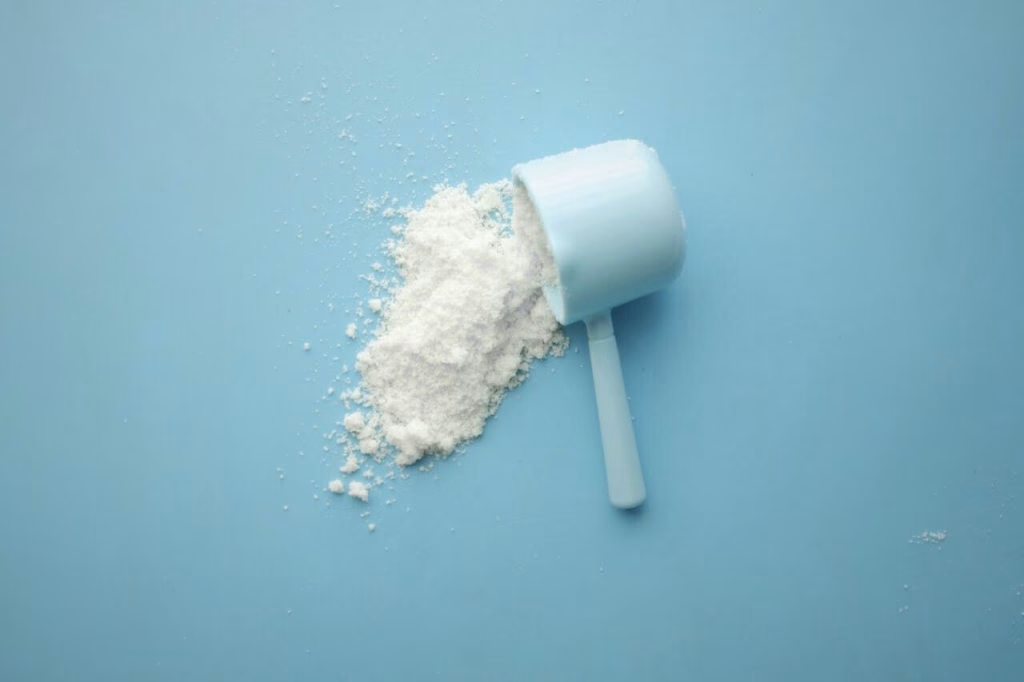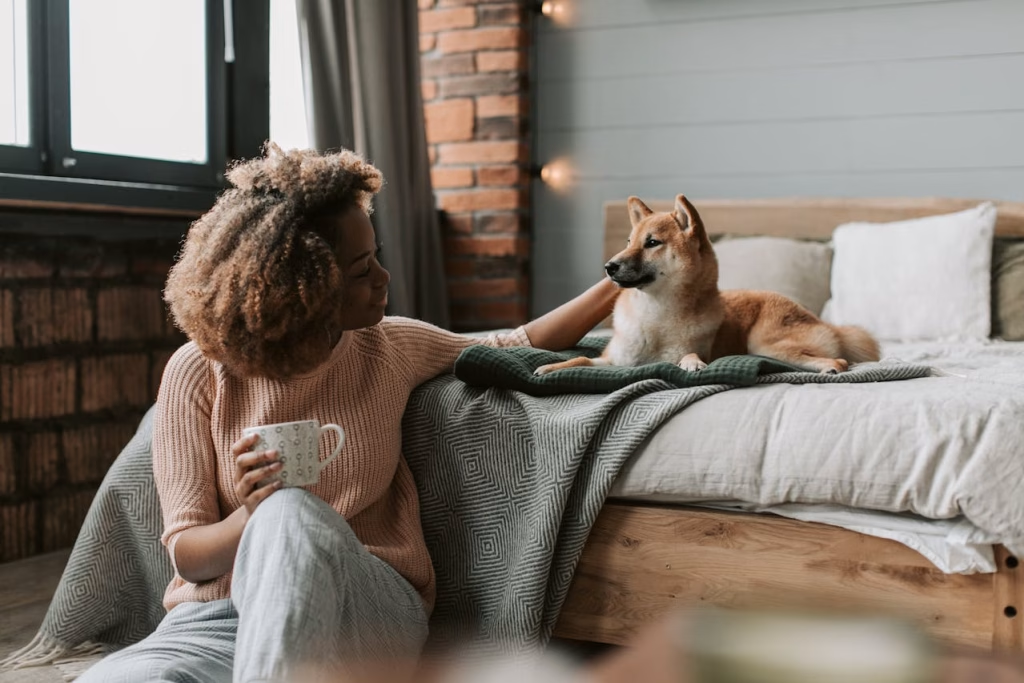When we think of night time routines, we usually think of kids and their wind-down time before bed by dimming the lights and reading a bedtime story. But the truth is, many of us are not getting enough quality sleep, and we need a night time routine as much as kids. If you’re waking up groggy, have 3 cups of coffee with only one eye open in the morning, or lying in bed for ages waiting to fall asleep in the evening, it might be time to rethink your night time habits.
Creating a simple but consistent nigh time routine can transform your sleep, and how you feel and function the next day. Let’s break down what helps, what we should avoid, and how to build a bedtime ritual that works in real life, not just on an Instagram Feed.
Start your wind-down 2–3 hours before bed. A good night’s sleep doesn’t begin when your head hits the pillow; it begins with what you do leading up to it, and sometimes it starts in the morning. Andrew Huberman talks a lot about circadian rhythm and how important it is to expose ourselves to morning sunlight, but for now, let’s focus on what you can do 2 to 3 hours before your bedtime.
Night Time Routine Does
✅ Dim the lights.
Turn off harsh and very bright lights and try to use warm light lamps. It helps signal to your body that it’s time to relax and prepare for bedtime. If you love using candles, make sure they are natural wax candles (like soy or beeswax) and not paraffin. Try to avoid scented candles in general – they can irritate your airways or give you a headache. Make sure to ventilate your room to eliminate the pollutants from the burning candles (1)
✅ Read a physical book.
Screens radiate blue light, which keeps us alert and suppresses melatonin production(2). Reading a paper book is one of the best ways to start winding down before bedtime. Choose something calming or gently informative, and leave intense books that require a lot of focus for earlier in the day.
✅ Write down tomorrow’s to-do list.
If your mind races at bedtime with things to remember: call the doctor, book the trip, reply to that email – offload it onto paper. Just a few minutes of writing down tasks can quiet that mental noise and help you fall asleep faster.
✅ Take a warm shower or bath.
Warm water helps drop your core body temperature which makes you more relaxed and is proven to increase sleep quality (3)(4). Skip the freezing plunges at night; instead, light a candle, put on music, and maybe add a few drops of peppermint or lavender essential oil.

✅ Go to bed at the same time every night.
Adults need routines just as much as kids do. Sticking to a regular sleep schedule, even on weekends, helps regulate your internal clock. Of course, life happens. But if you’re home and winding down, try to keep it consistent.
✅ Snack on food that naturally contains melatonin.
This includes pistachios, walnuts kiwis, and tart cherries (8)(9). A few tips: consume these foods with your last meal or 2 to 3 hours before bed as a snack. If you are choosing pistachios, make sure to have not salted ones. 20 to 30 pistachios will provide over 6 mg of melatonin. For comparison, regular melatonin supplements have 5 to 10 mg, so why pop a pill when you can have something natural and also offers antioxidant and anti-inflammatory benefits.
✅ Leave your phone in another room.
Get yourself an old-school alarm clock and charge your phone elsewhere. That final scroll through Instagram isn’t relaxing your brain, it’s making it alert.
✅ Drink calming tea—but not right before bed.
Herbal teas like chamomile (10), lemon balm, or peppermint(11) can help you relax but try to have your last cup an hour before bed so you’re not waking up to pee at 3 a.m.
✅ Ventilate your bedroom and set the right temperature.
Our bodies naturally cool down at night, and a cool (but not cold) room helps with that. Studies show that the optimal bedroom temperature is 20-24°C (68 – 75 °F) and sleep efficiency starts decreasing with temperature increase. (12)
Open a window for a few minutes or invest in an air purifier if you live in a more polluted area to make sure you breathe in clean air when you are sleeping.
✅ Practice relaxation.
A great addition to your nighttime routine is adding a relaxation practice. Practicing relaxation like breathwork, meditation or Yoga Nidra is an amazing way to calm down your nervous system and prepare yourself for deep sleep. (6) Even 5 to 10 minutes of relaxation practice will calm you down.
Meditation and relaxation techniques can improve deep sleep, even in peri- and post-menopausal women with early-life physical abuse trauma.(7)
If you don’t know how to start, check out articles on barefoot basil :
The Best Breathwork Channels on YouTube for all levels
The Best Guided Meditation YouTube Channels
All you need to know about Yoga Nidra or NSDR
✅ Wear loose, breathable clothing.
Comfort matters for quality sleep. Tight waistbands, bras, or synthetic materials can disrupt circulation and make you sweat. Think organic cotton or bamboo fabrics that feel soft and let your skin breathe.
✅ If you mouth-breathe, try taping your mouth.
This can sound strange, but mouth taping helps with nasal breathing, which supports better oxygen flow and can improve sleep quality. I’ve personally noticed a big difference in my REM and deep sleep and I am continuing taping my mouth every night. If you want to learn more about it, make sure to check out my articles:
Mouth Tape for Sleep: Does it Work?
I Tried Mouth Taping for 10 Nights, The Results Surprised Me
Take your nighttime supplements.
Supplements like magnesium (especially glycinate or threonate), ashwagandha, reishi, vitamin D, and amino acids can all aid sleep quality. (13) Make sure to speak with your health provider before taking supplements.
Night Time Routine Dont's
❌ Don’t eat too close to bedtime.
Digestion keeps your body active when it should be repairing and resting. Aim to finish eating at least 2–3 hours before you sleep. It can also help if you suffer from a heartburn.(14)
❌ Don’t look at screens right before sleep.
Blue light messes with melatonin (2). Even if it feels like a way to relax, scrolling on your phone keeps your brain alert. Try to switch off the screens at least an hour before bed.

❌ Don’t have caffeine after noon.
Even if you are not too sensitive to caffeine, it can stay in your system for 6–8 hours. That includes coffee, black tea, green tea, and matcha. It affects your sleep quality, affecting your REM and deep sleep and keeping you in a light sleep phase for longer, so try to avoid caffeine at least 8 hours before bed. (15)
❌ Don’t do intense workouts late at night.
A bit of gentle yoga, stretching or Tai Chi can increase sleep quality (5), but a heavy gym session will keep your system wired for hours.
❌ Don’t have emotionally intense conversations.
Talking about problems, health worries, or stressful news before bed can send your mind into overdrive. My partner and I have a no-heavy-topic rule at night. Problems can wait until morning.
❌ Avoid drinking water right before bed.
Hydration is important, but front-load your fluids earlier in the day. Drinking too much late at night means middle-of-the-night bathroom runs.
❌ Avoid alcohol.
Even one glass of wine can disrupt your sleep by negatively impacting REM sleep, with a delay in its onset and a reduction in its duration. It might help you fall asleep faster, but your body will be more stressed and less rested overnight. (16)
One Step at a Time
A bedtime routine shouldn’t feel overwhelming or be a strict checklist. The goal isn’t perfection, but slow improvement. Start small. Pick one or two changes to try this week and see how you feel. Some nights you’ll sleep well, some nights you won’t, and that’s okay. Hormones, stress, your cycle, and even the moon can affect sleep.
Just keep coming back to what feels good for you.
Downloadable Night Time Routine Checklist. You can save or share this list to help build your routine:

What are your go-to nighttime rituals? I’d love to hear what’s been working for you—or what hasn’t. Let’s figure this out together.
It is important to note that a good night’s sleep also depends on how you start your day; you can learn about it here :
A Simple and Science-Backed Morning Routine to Reduce Anxiety
References
- https://health.clevelandclinic.org/are-candles-bad-for-you
- West, K., Jablonski, M., Warfield, B., Cecil, K., James, M., Ayers, M., Maida, J., Bowen, C., Sliney, D., Rollag, M., Hanifin, J., & Brainard, G. (2011). Blue light from light-emitting diodes elicits a dose-dependent suppression of melatonin in humans.. Journal of applied physiology, 110 3, 619-26 . https://doi.org/10.1152/japplphysiol.01413.2009.
- Warseno, A., & Sukmawati, A. (2019). Effect of hydrotherapy on sleep deficiency among older people in integrated community health services in Pandak I Bantul. Frontiers of Nursing, 6, 67 – 70. https://doi.org/10.2478/fon-2019-0001.
- De Melo Vitorino, D., Carvalho, L., & Prado, G. (2006). Hydrotherapy and conventional physiotherapy improve total sleep time and quality of life of fibromyalgia patients: randomized clinical trial.. Sleep medicine, 7 3, 293-6 . https://doi.org/10.1016/J.SLEEP.2005.09.002.
- He, B., Zhang, L., Zhuang, J., Xu, J., Li, P., & Peng, H. (2019). The effects of different meditation exercises on sleep quality in older people: a network meta-analysis. European Geriatric Medicine, 10, 543-552. https://doi.org/10.1007/s41999-019-00212-1.
- Barrett, B., Harden, C., Brown, R., Coe, C., & Irwin, M. (2020). Mindfulness meditation and exercise both improve sleep quality: Secondary analysis of a randomized controlled trial of community dwelling adults.. Sleep health. https://doi.org/10.1016/j.sleh.2020.04.003.
- Pal, A., Agrawal, A., Ghahremani, D., & Macey, P. (2023). 0862 Effect of meditation and relaxation on physiological markers of stress and sleep. SLEEP. https://doi.org/10.1093/sleep/zsad077.0862.
- Kanon, A., Giezenaar, C., Roy, N., McNabb, W., & Henare, S. (2023). Acute effects of fresh versus dried Hayward green kiwifruit on sleep quality, mood, and sleep-related urinary metabolites in healthy young men with good and poor sleep quality. Frontiers in Nutrition, 10. https://doi.org/10.3389/fnut.2023.1079609.
- Howatson, G., Bell, P., Tallent, J., Middleton, B., McHugh, M., & Ellis, J. (2012). Effect of tart cherry juice (Prunus cerasus) on melatonin levels and enhanced sleep quality. European Journal of Nutrition, 51, 909-916. https://doi.org/10.1007/s00394-011-0263-7.
- Chang, S., & Chen, C. (2016). Effects of an intervention with drinking chamomile tea on sleep quality and depression in sleep disturbed postnatal women: a randomized controlled trial.. Journal of advanced nursing, 72 2, 306-15 . https://doi.org/10.1111/jan.12836.
- Abdelhalim, A. (2021). The effect of Mentha piperita L. on the mental health issues of university students: A pilot study. Journal of Pharmacy & Pharmacognosy Research. https://doi.org/10.56499/jppres20.932_9.1.49.
- Baniassadi, A., Yu, W., Travison, T., Lipsitz, L., & Manor, B. (2024). NIGHTTIME AMBIENT TEMPERATURE AND SLEEP IN OLDER ADULTS. Innovation in Aging, 8, 191 – 191. https://doi.org/10.1093/geroni/igae098.0618.
- Chan, V., & Lo, K. (2021). Efficacy of dietary supplements on improving sleep quality: a systematic review and meta-analysis. Postgraduate Medical Journal, 98, 285 – 293. https://doi.org/10.1136/postgradmedj-2020-139319.
- Chung, N., Bin, Y., Cistulli, P., & Chow, C. (2020). Does the Proximity of Meals to Bedtime Influence the Sleep of Young Adults? A Cross-Sectional Survey of University Students. International Journal of Environmental Research and Public Health, 17. https://doi.org/10.3390/ijerph17082677.
- Gardiner, C., Weakley, J., Burke, L., Roach, G., Sargent, C., Maniar, N., Townshend, A., & Halson, S. (2023). The effect of caffeine on subsequent sleep: A systematic review and meta-analysis.. Sleep medicine reviews, 69, 101764. https://doi.org/10.1016/j.smrv.2023.101764.
- Gardiner, C., Weakley, J., Burke, L., Roach, G., Sargent, C., Maniar, N., Huynh, M., Miller, D., Townshend, A., & Halson, S. (2024). The effect of alcohol on subsequent sleep in healthy adults: A systematic review and meta-analysis.. Sleep medicine reviews, 80, 102030 . https://doi.org/10.1016/j.smrv.2024.102030.
Silvija Meilunaite, PN1-NC, CSMC, is a certified nutrition and menopause coaching specialist who writes about midlife health, nutrition, and evidence-based wellness. She focuses on research-driven approaches to feeling better in your 40s and beyond, with a special interest in low-tox living and supportive daily habits.
- This author does not have any more posts.





